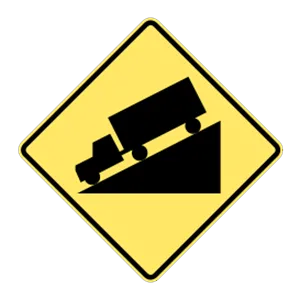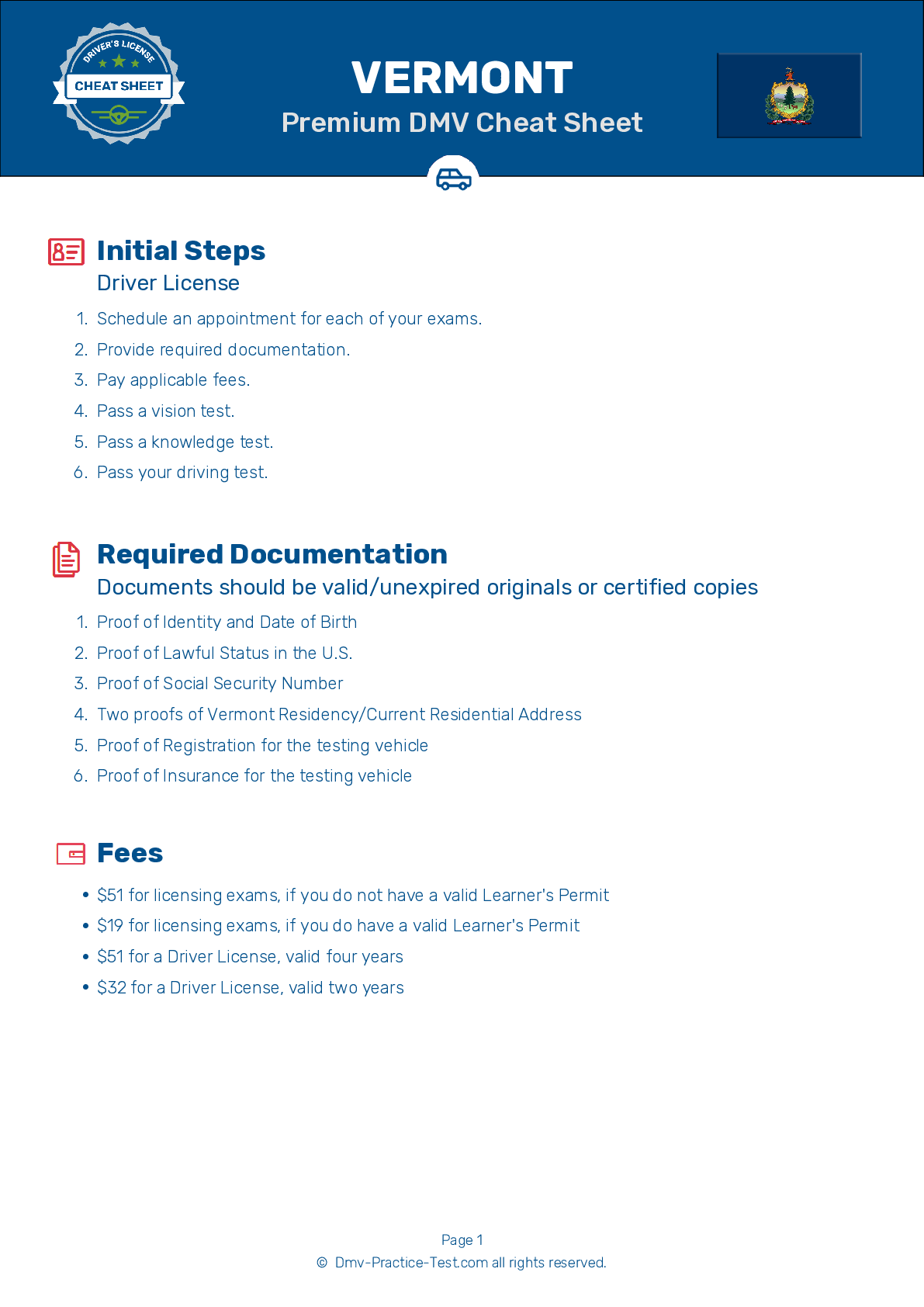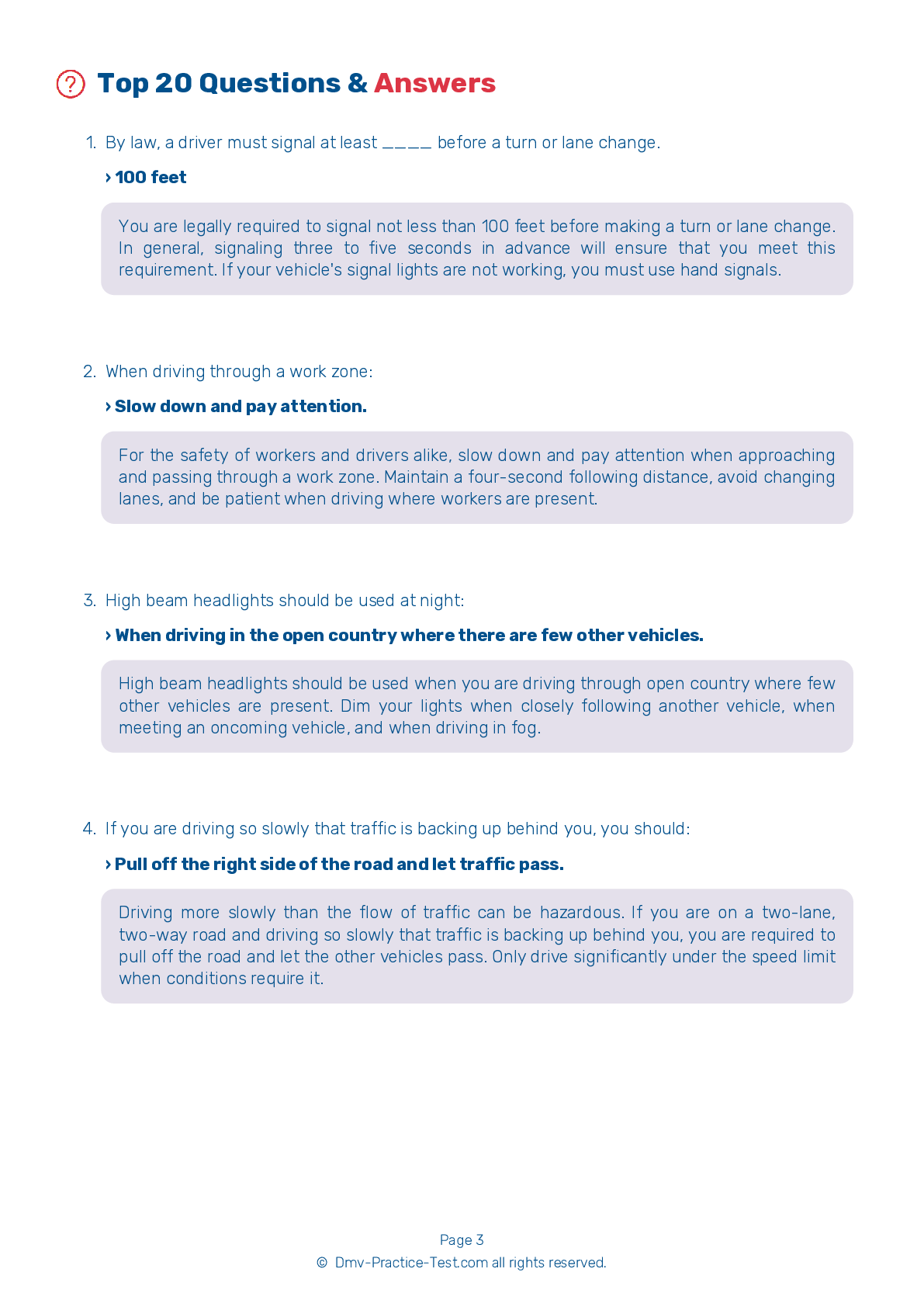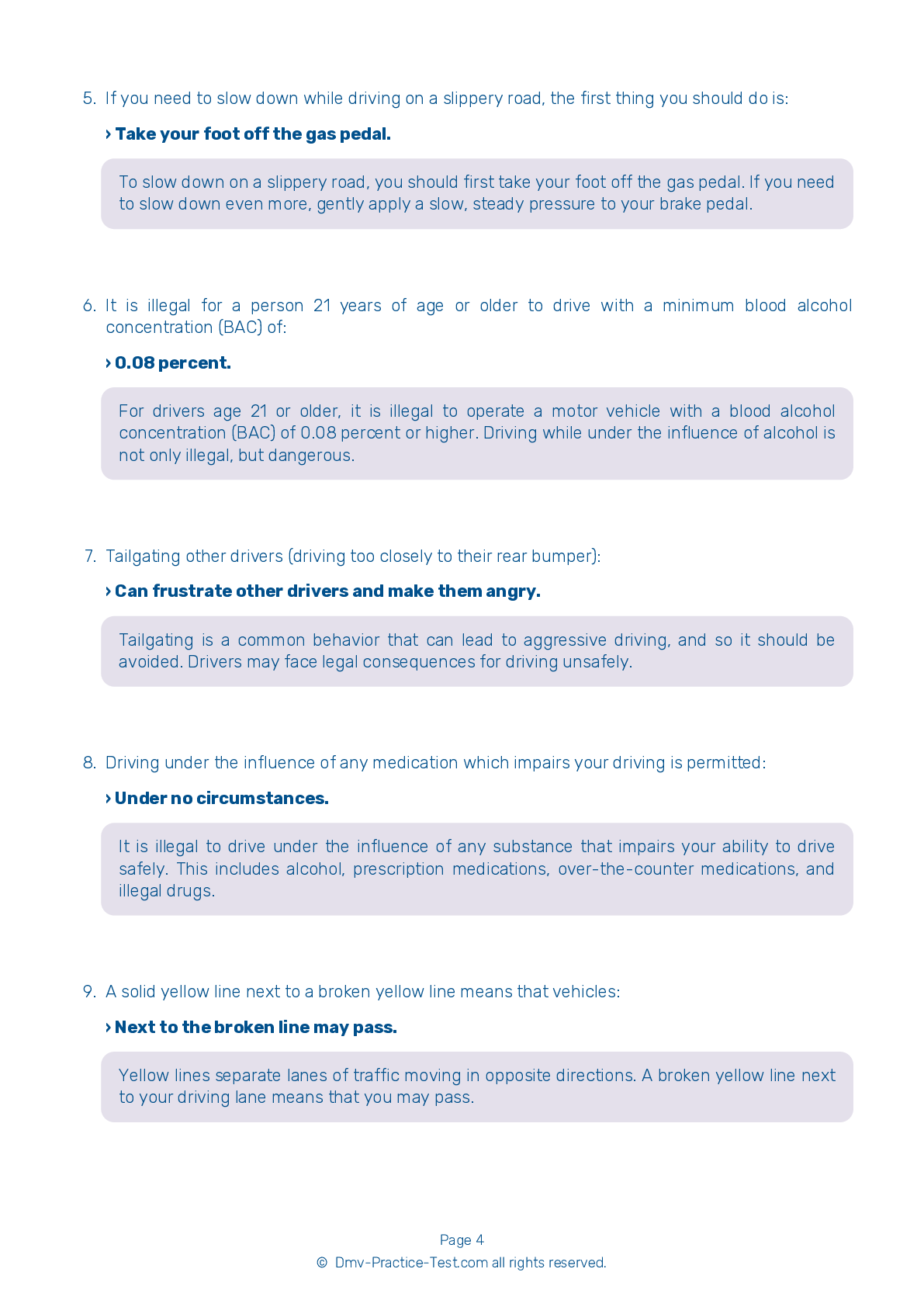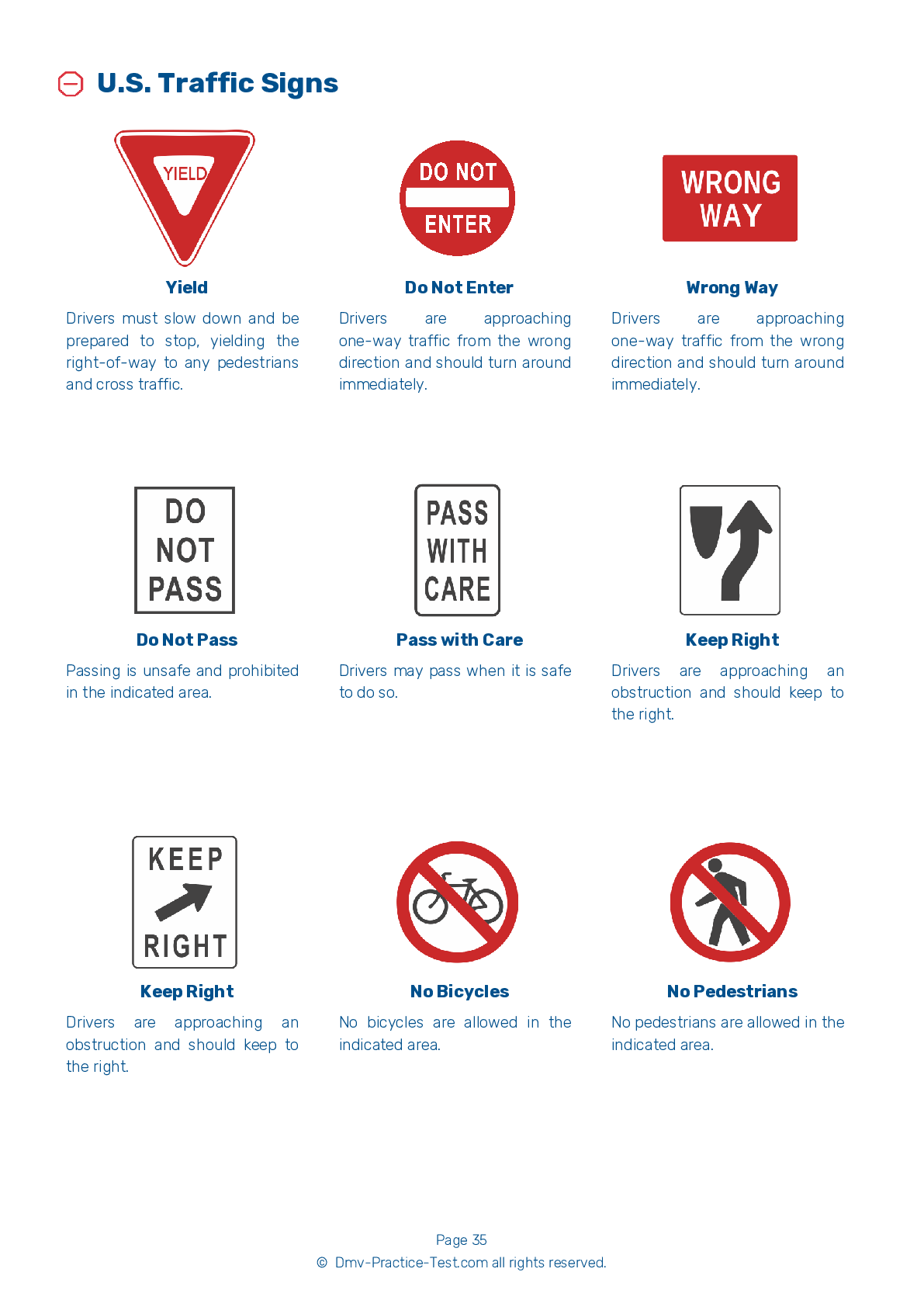FREE Vermont DMV Practice Test #19 Page 3 of 3
The Vermont DMV practise examinations have been updated for January 2026. It includes questions based on the Vermont Driver Handbook's most significant traffic signals and legislation for 2026. Use actual questions that are very similar (often identical!) to the DMV driving permit test and driver's licence exam to study for the DMV driving permit test and driver's licence exam.
On the practise exam, each question gets a tip and explanation to help you remember the concepts. The written component of the official Vermont DMV test will include questions about traffic rules, traffic signs, and driving statutes, as well as knowledge from the Driver Handbook.
To obtain a passing grade, you must correctly answer 16 of the 20 questions. Use the practise exam provided by the Vermont Department of Motor Vehicles to help you prepare for your instruction permit or driver's licence.
The DMV exam is available in several languages.
Using any kind of testing assistance will result in an automatic fail, and the DMV may take additional action against your driver's licence, so stay away from it.
14 . You are involved in an accident and another person is injured. You should:
After an accident, do not move the injured unnecessarily. Unskilled handling can make serious injuries out of minor ones. Keep the injured warm until skilled help arrives. If there is severe bleeding, attempt to stop the flow of blood with direct pressure.
15 . This sign means:
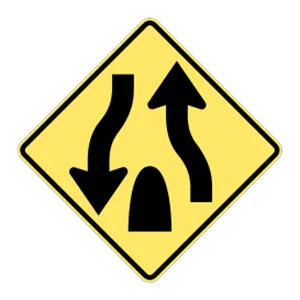
This sign warns drivers that the divided highway ends ahead.
17 . When driving on wet pavement, it's important to remember:
Wet roadway surfaces can be dangerously slick, especially immediately following a rainfall. When you are driving on wet roads, your vehicle is traveling on a thin layer of oil, dirt, and water. Slow down when there is heavy rain, standing water, or slush on the road to reduce the risk of your wheels losing traction on the slick surface.
18 . You want to back out of your driveway. You see children playing nearby. Before you start to move your car, you should:
When you back up a vehicle, look through your back window for pedestrians and other obstacles. Do not rely only on your mirrors, especially when children are near. Before you back into or out of a driveway, get out of the vehicle and check behind your vehicle.
19 . To drive safely at night, you should:
At night, visibility is reduced. Take steps to make driving in the dark more safe for you and the other drivers on the road.
20 . You are coming to an intersection and have a green light. Pedestrians are crossing against the red. You should:
Yield to pedestrians and cars that may be caught in an intersection when you have a green light. Be careful around pedestrians under every circumstance.
2026 Vermont | Frequently Asked Questions
1. Not checking mirrors and blind spots before changing lanes or turning.
2. Speeding or driving too slowly for the conditions or posted speed limit.
3. Not coming to a complete stop at stop signs or red lights.
4. Incorrect signalling or not signalling at all.
5. Poor parking, especially parallel parking.
Remember, practice makes perfect, so take time to hone your skills.
